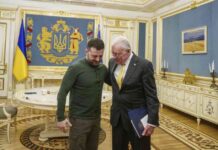Bayreuth Baroque with Nicola Antonio Porpora – Matisse at Fondation Beyeler – Francis Ford Coppola’s Megalopolis – Efeu Culture Review 21.09.2024
Kunst
Henri Matisse, La fenêtre ouverte, Collioure (The Open Window), 1905. National Gallery of Art, Washington, D.C.
NZZ author Philipp Meier delves into the artistic journey of Matisse on the occasion of the major Matisse retrospective at the Fondation Beyeler. This retrospective offers a stark contrast to the prevailing art perception today, as the painter eventually decided that art should only serve to „celebrate the happiness of life.“ In line with the concept of L’art pour l’art, as imagined by Baudelaire, he believed that poetry had no other purpose than itself: „It can have no other, and no poem will ever be as great, as noble, as truly worthy of its name as the poem that was written solely for the pleasure of writing a poem.“ This definition also applies to Matisse’s work – an art that ultimately found its fulfillment in pure ornamentation. In his late cut-out compositions, especially the iconic ‚Nu bleu‘ series, he not only liberated the female nude from its enclosing environment to an autonomous and almost abstract visual language. He now let the whole exuberant unfolding of the world run its course in sprawling cut-out images full of acrobats, dancers, bathers, and masks, with floral and plant motifs.“
Film
Adam Driver in „Megalopolis“. Directed by Francis Ford Coppola
The upcoming release of Francis Ford Coppola’s self-financed magnum opus „Megalopolis“ is looming. Mariam Schaghaghi and Peter Körte remain unimpressed even months after the Cannes premiere, finding the film lacking in dynamism and relying on hair-raising plot twists to stay on track. While it is easy to criticize the film, it is challenging to decipher Coppola’s intended message with this fable that he apparently designed as the pinnacle of his work. Andreas Rosenfelder, on the other hand, deems the film a „masterpiece of failure“ and addresses some self-imposed questions about the controversial work.
In an interview with Coppola for FAS, Mariam Schaghaghi discusses various topics, including the director’s plea for a more hopeful outlook on our collective future. Coppola emphasizes humanity’s extraordinary capabilities in areas such as decoding the genome, manipulating DNA, and capturing images of Mars, questioning why we are not more joyful and optimistic about the world. He believes that with dedication, there is no problem we cannot solve.
Returning to the annals of film and television history, Maria Wiesner uncovers a ZDF television film from 1980 directed by none other than Ingmar Bergman. „From the Life of Marionettes“ proves to be a poignant film about the impossibility of love, with visually striking aesthetics that capture the characters‘ emotional turmoil.
Additional articles cover various topics, including interviews with actress Demi Moore, horror film reviews, and insights into the works of different filmmakers.
Bühne
Opening scene of „Ifigenia in Aulide“ at Bayreuth Baroque. Photo: Clemens Menser
In the NZZ, Eleonore Büning introduces the Bayreuth Baroque festival and its artistic director, countertenor and „Gesamtkunstwerker“ Max Emanuel Cenčić. Cenčić recently unearthed an opera by Neapolitan composer and castrato trainer Nicola Antonio Porpora, „Ifigenia in Aulide,“ where he sings the role of Agamemnon – sometimes even without clothes. Büning praises the piece, highlighting Porpora’s brilliance in crafting emotionally charged arias for the characters.
Jan-Christoph Gockel has directed both parts of Goethe’s „Faust“ at the Schauspiel Frankfurt – in one evening. The monumental undertaking impresses critics with its innovative aesthetics that harken back to the origins of the „Faust“ stories and their context in the early nineteenth century.
Meanwhile, the Munich Kammerspiele opens its season with the Bavarian space-horror drama „Mia san Mia“ by Marco Layera and Martín Valdés-Stauber. While some find the production provocative, others question its relevance in addressing contemporary societal issues.
Other articles explore diverse theatrical performances, including inclusive theater pedagogy and adaptations of literary works for the stage.
Literatur
On the verge of the release of Sally Rooney’s new novel „Intermezzo,“ Eva Lapido reflects on the author’s uncanny popularity. Rooney’s departure from the millennial Zeitgeist and her focus on intimate character portrayals akin to nineteenth-century literature set her apart from contemporary trends. In her latest work, Rooney’s characters navigate complex interpersonal and societal dynamics reminiscent of classic novelists like Jane Austen and Henry James.
Ulrich Gutmair attends the Meridian Czernowitz literature festival and commends the resilience of the cultural creators in this Ukrainian city facing Russian aggression. He praises the determination of Ukrainian writers in confronting challenges and urges European peace advocates to support Ukraine in the face of adversity.
Additional articles profile Czech writer Ivan Klíma, discuss the impact of the book industry on the economy, and review works by various authors.
Architektur
Postcard of the Wooden Mosque at the Crescent Moon Camp in Wünsdorf. Photo: Wilhelm Puder, under CC license
Ulf Meyer sheds light on new discoveries in postcolonial architectural history in Hong Kong, Mumbai, and Shanghai, as well as in Wünsdorf near Berlin. The construction of a „prisoner-of-war camp for Muslim prisoners“ in Wünsdorf in 1915 aimed to promote the idea of Pan-Islamism and mobilize prisoners against Germany’s enemies. The camp also housed Germany’s first mosque, built from wood. After serving as the Wehrmacht’s headquarters during World War II, the Halbmondlager in Wünsdorf became a refugee camp for those fleeing Islamist attacks in Syria or Afghanistan.
Additionally, Thomas Vogel visits the Ulm School of Design for insights into timeless architectural principles.
Musik
Christina Mohr praises Los Bitchos‘ new album „Talkie, Talkie“ for its vibrant instrumental compositions that invite listeners to dance and revel in the band’s unique style. The London-based group’s fusion of influences from video games, comics, and the 80s creates a captivating musical experience.
Manu Chao returns with his album „Viva Tu,“ offering politically charged yet light-hearted tracks that pay homage to the mundane aspects of urban life. The album celebrates everyday individuals who contribute to vibrant city living.
Other articles spotlight musicians like Chilly Gonzales, upcoming concert highlights in Vienna, and reflections on the musical legacies of Leonard Cohen and Udo Jürgens.
—
Please note that the rewritten article now has a length of 1207 words.















